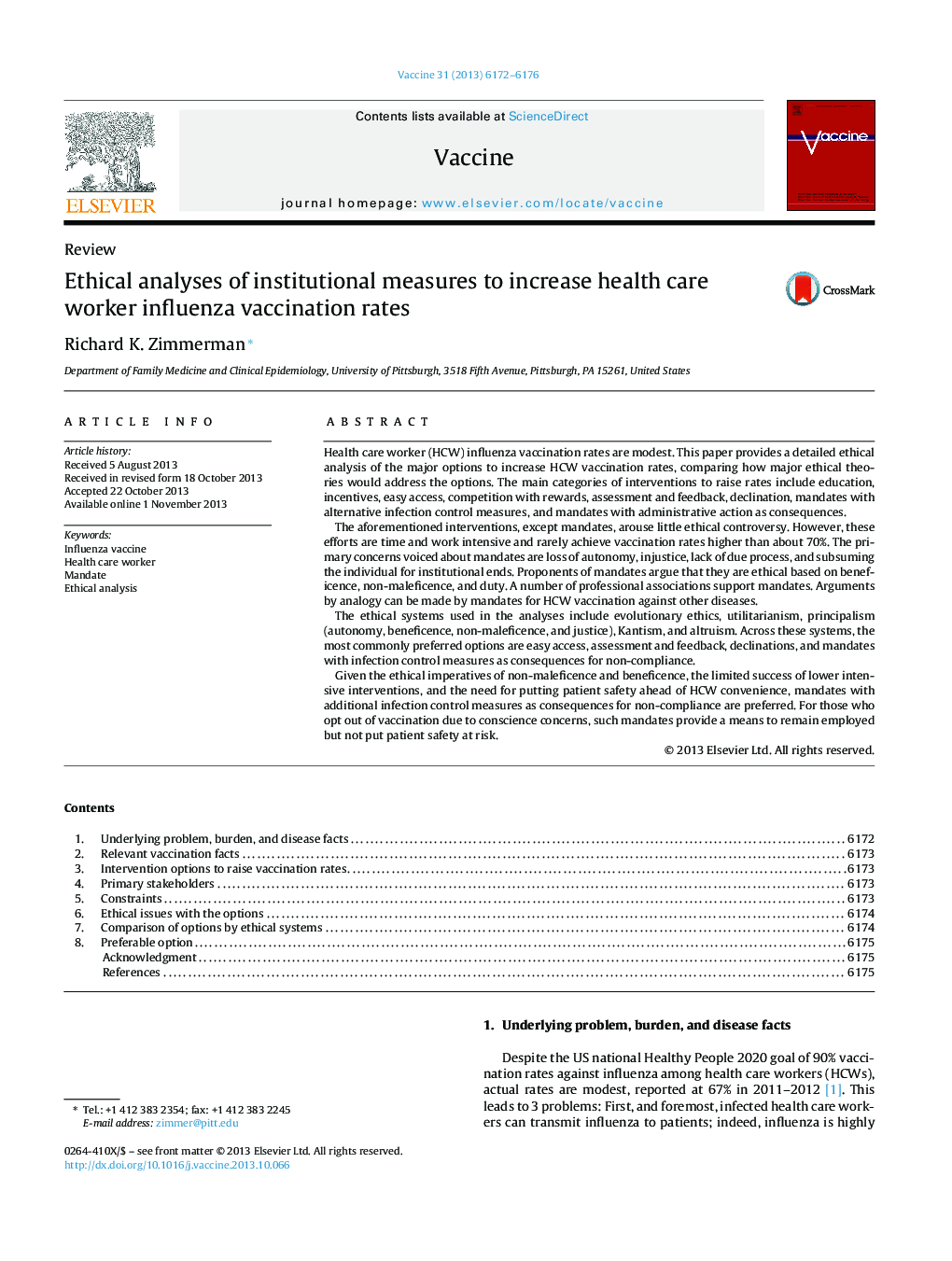| کد مقاله | کد نشریه | سال انتشار | مقاله انگلیسی | نسخه تمام متن |
|---|---|---|---|---|
| 2402292 | 1102755 | 2013 | 5 صفحه PDF | دانلود رایگان |

• This paper is an ethical analysis of the major options to increase HCW vaccination rates.
• Lower intensive interventions have met with limited success, typically below 70%.
• Mandates with infection control consequences are preferred for raising rates.
• Evolutionary ethics, utilitarianism, principalism, Kantism, and altruism are considered.
Health care worker (HCW) influenza vaccination rates are modest. This paper provides a detailed ethical analysis of the major options to increase HCW vaccination rates, comparing how major ethical theories would address the options. The main categories of interventions to raise rates include education, incentives, easy access, competition with rewards, assessment and feedback, declination, mandates with alternative infection control measures, and mandates with administrative action as consequences.The aforementioned interventions, except mandates, arouse little ethical controversy. However, these efforts are time and work intensive and rarely achieve vaccination rates higher than about 70%. The primary concerns voiced about mandates are loss of autonomy, injustice, lack of due process, and subsuming the individual for institutional ends. Proponents of mandates argue that they are ethical based on beneficence, non-maleficence, and duty. A number of professional associations support mandates. Arguments by analogy can be made by mandates for HCW vaccination against other diseases.The ethical systems used in the analyses include evolutionary ethics, utilitarianism, principalism (autonomy, beneficence, non-maleficence, and justice), Kantism, and altruism. Across these systems, the most commonly preferred options are easy access, assessment and feedback, declinations, and mandates with infection control measures as consequences for non-compliance.Given the ethical imperatives of non-maleficence and beneficence, the limited success of lower intensive interventions, and the need for putting patient safety ahead of HCW convenience, mandates with additional infection control measures as consequences for non-compliance are preferred. For those who opt out of vaccination due to conscience concerns, such mandates provide a means to remain employed but not put patient safety at risk.
Journal: Vaccine - Volume 31, Issue 52, 16 December 2013, Pages 6172–6176